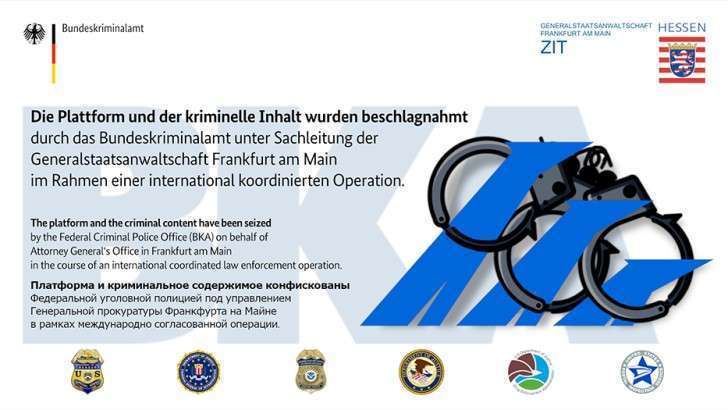Germany’s Federal Criminal Police Office, the Bundeskriminalamt (BKA), on Tuesday announced the official takedown of Hydra, the world’s largest illegal dark web marketplace.
„[543] Bitcoins amounting to currently the equivalent of approximately €23 million were seized, which are attributed to the marketplace,” the BKA said in a press release.
The agency attributed the shutdown of Hydra to an extensive investigation operation conducted by its Central Office for Combating Cybercrime (ZIT) in partnership with U.S. law enforcement authorities since August 2021.
Launched in 2015, Hydra was a Russian-language darknet marketplace that opened as a competitor to the now-defunct Russian Anonymous Marketplace (aka RAMP), primarily known for its high-traffic narcotics market before expanding their focus to peddle forged documents and stolen credit cards.
„Cybercriminals now use it to conduct illicit sales of stolen credit cards, SIM cards, and counterfeit documents and IDs, among other offerings — as well as to obfuscate their own digital transactions through regional exchanges and extended money laundering tactics,” Flashpoint noted in a May 2021 report.

Hydra’s annual transaction volumes are estimated to have crossed $1.37 billion by the end of 2020, marking a staggering rise from a mere $9.40 million in 2016. Roughly 17 million customer and over 19,000 seller accounts are said to have been registered on the marketplace, the BKA said.
Visitors to the marketplace website are now greeted by a seizure banner that says: „The platform and the criminal content have been seized by the Federal Criminal Police Office (BKA) on behalf of the Attorney General’s Office in Frankfurt am Main in the course of an international coordinated law enforcement operation.”
The demise of Hydra follows a wave of recent law enforcement actions against criminal marketplaces since the start of the year, including that of UniCC, Canadian HeadQuarters, and four Russian carding shops Ferum Shop, Sky-Fraud, Trump’s Dumps, and UAS that specialized in the sales of stolen credit cards.




